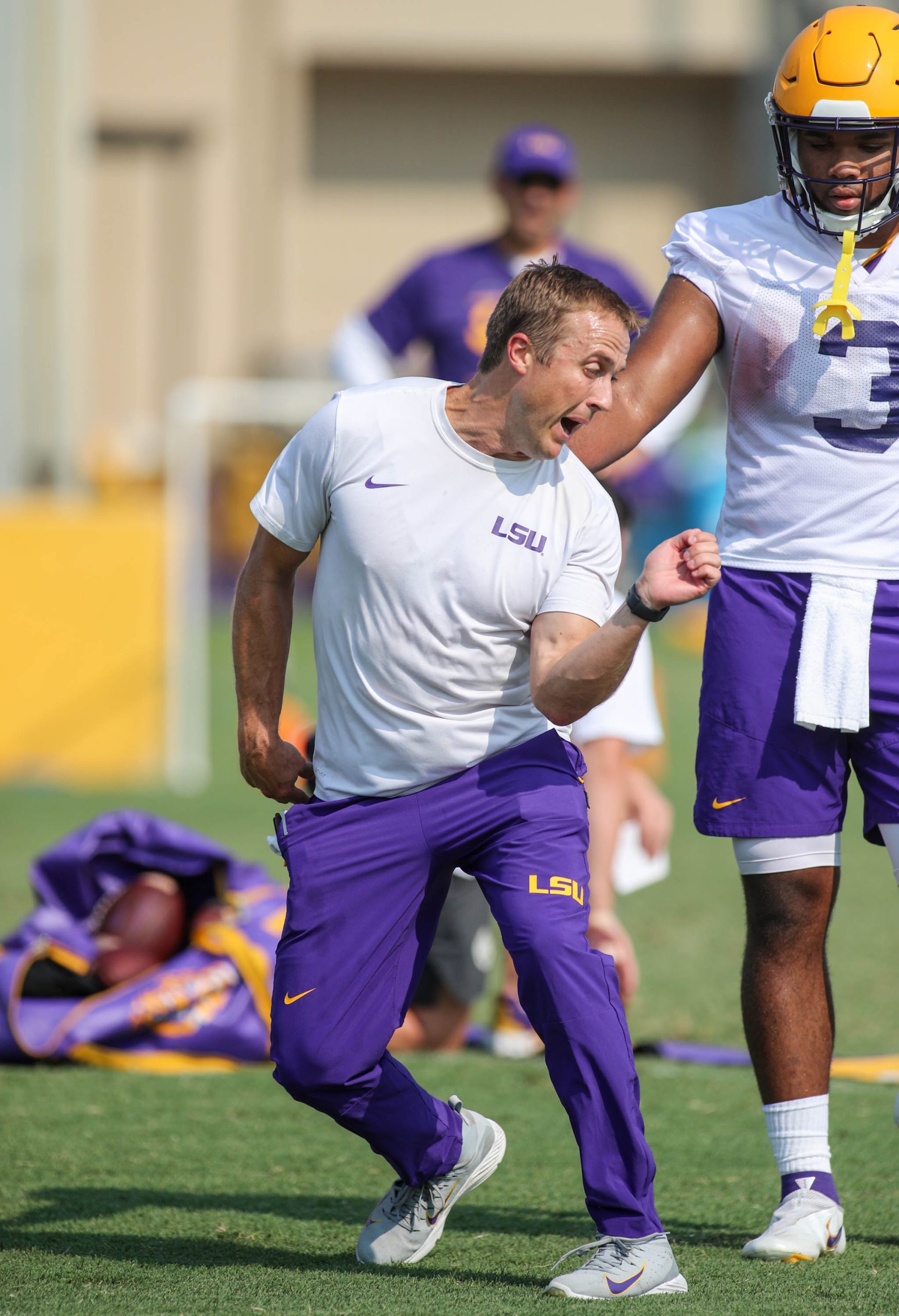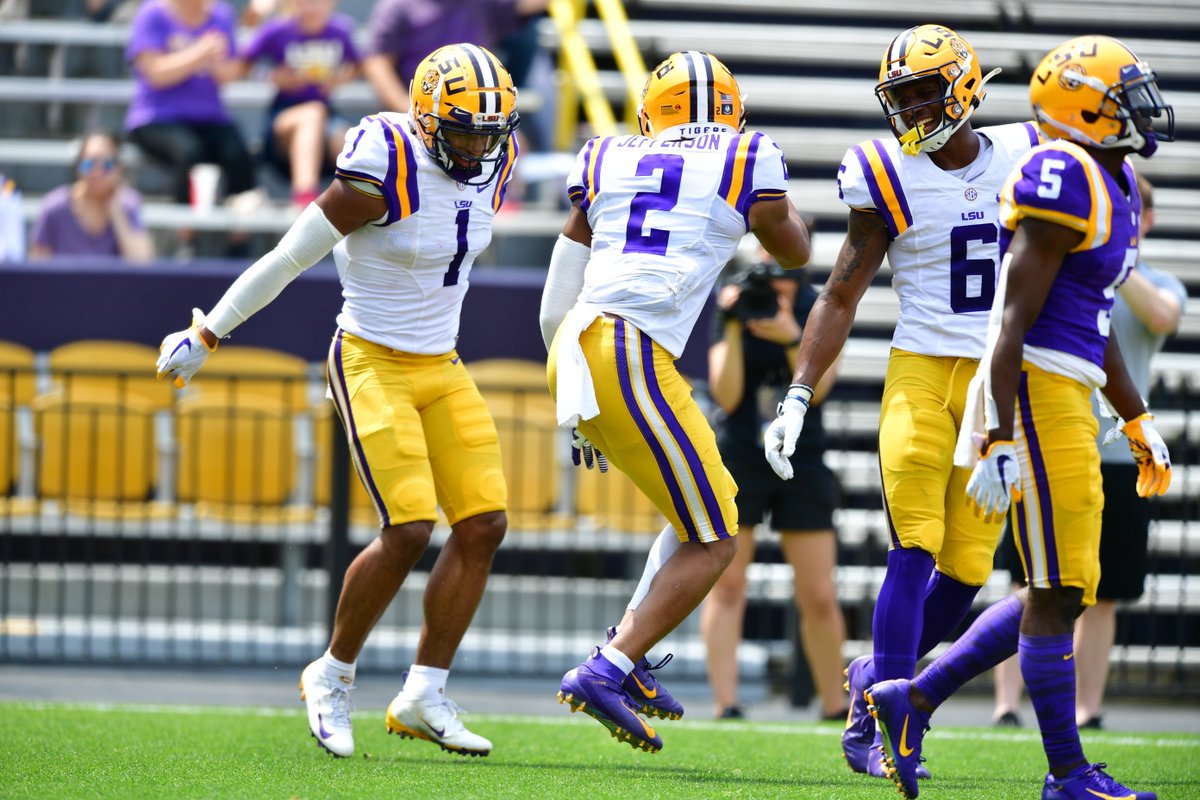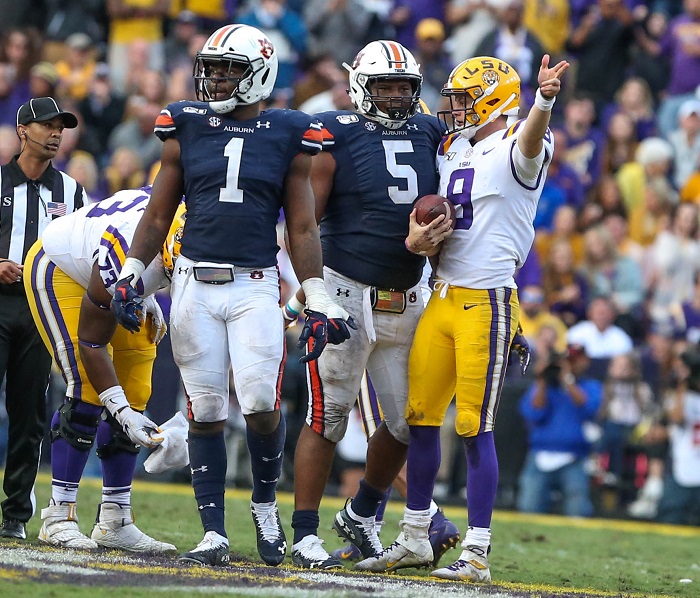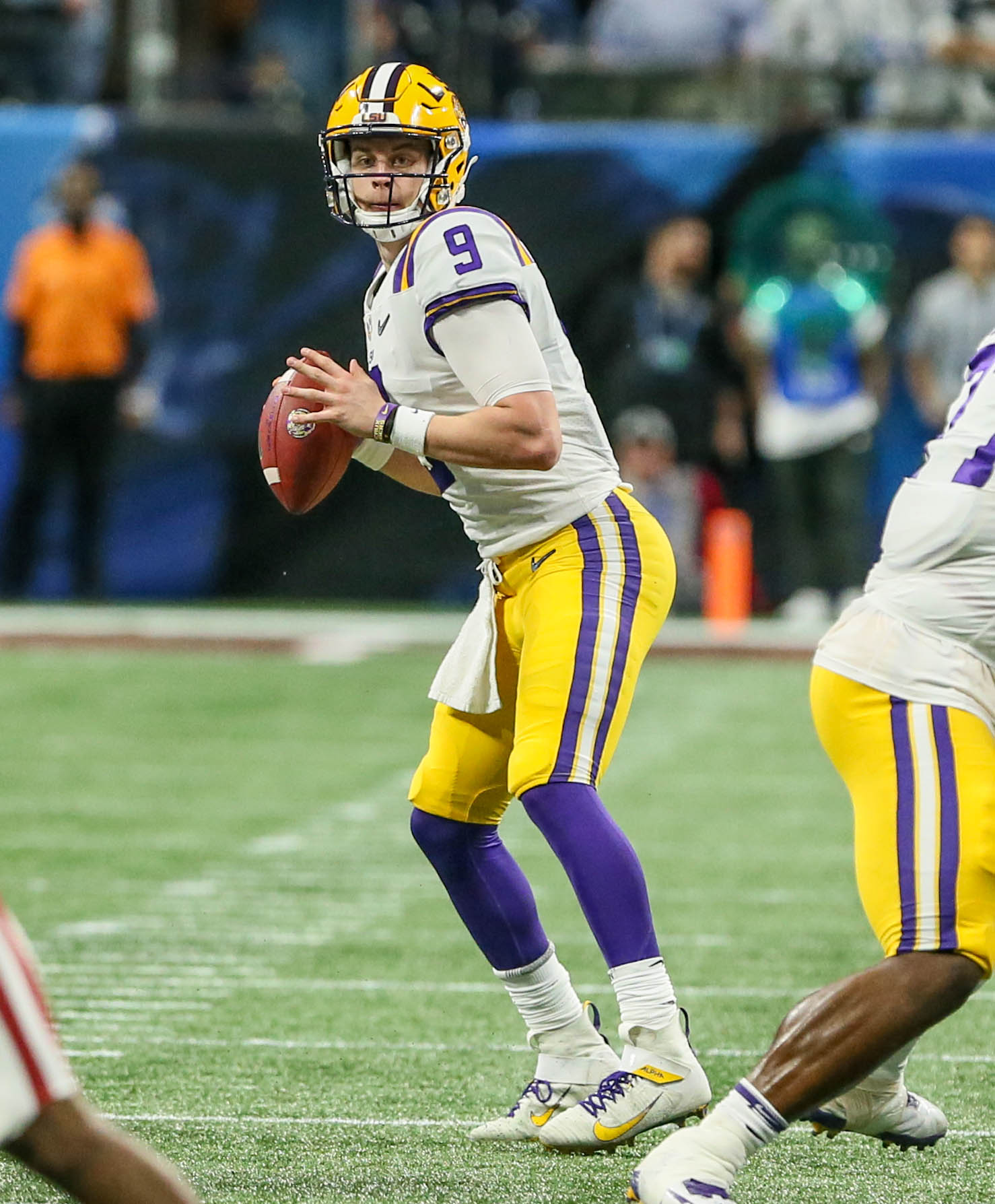
If anything, last year’s 5-5 LSU season was a slap-in-the-face reminder that football is and will always be a game of process.
Unlike any sport because there are so many simultaneously moving parts, you can’t skip steps.
You can’t just show up like Ohio State graduate transfer quarterback Joe Burrow did at LSU in late summer of 2018 and be great.
It took a full season, a spring practice and a full off-season for Burrow and the offense to develop into the 2019 juggernaut that burned down 15 defenses en route to a national championship.
LSU may have officially won the title game over Clemson in January 2020, but the Tigers laid the groundwork the previous spring and summer with eventual Heisman Trophy winner Burrow and his receivers spending hours and hours working together.
No details went untouched. It got to the point in the heat of a game if Burrow saw a defense in a certain alignment, he already knew his receivers knew what route they would adjust to as the play unfolded.
How do you stop that?
You don’t.
How do you become that unstoppable?
Hours and hours of off-season work, which LSU didn’t have a year ago after the COVID-19 pandemic not only wiped away spring practice, but also at least two to three more months of summer training.
It’s not an excuse, but simply fact. The 2020 college teams around the country with the most returning starters were able to survive no spring practice and no summer workouts.
They already knew the playbook and were familiar with their coaches. The players had built camaraderie and trust from previous years.
But for LSU, the timing of COVID-19, many new starters including quarterback and new coaching hires in such key spots as defensive coordinator and passing game coordinator, resulted in a string of exceptionally bad performances on both sides of the ball.
“Last year because of covid and stuff, we didn’t really have time to actually bond as a team,” LSU defensive end Andre Anthony said Saturday before the Tigers’ second preseason practice leading to the 2021 opener Sept. 4 at UCLA. “Everybody was going to their separate places, we were quarantining at home. We really didn’t get to be around each other but a week or two for camp.
“A lot of situations last year happened from lack of communication. Everybody was on different pages.”
It looked like the Tigers weren’t even reading the same book, judging from some of the repeated gaffes.
An offensive line with three new starters gave up seven sacks in a season-opening home loss to 44-34 to 16½-point underdog Mississippi State. Part of the blame was also on then-new starting quarterback Myles Brennan holding the ball too long in the pocket.
By the time he fully corrected that, he suffered a season-ending torn abdomen in an embarrassing 45-41 road loss at 14 ½-point underdog Missouri in the third game of the season.
That was the day the Tigers officially knew they were in trouble when Missouri receivers caught four TD passes on wide-open routes as LSU defenders pointed fingers at each other as Mizzou celebrated its repeated good fortune.
How many times last season did you see the LSU defenders still trying to get in position as the ball was snapped?
“There ain’t no secrets on the field,” LSU safety Jay Ward said. “So, we always must talk.”
Yet, the problem last season was that only a handful of players knew what they were talking about.
LSU head coach Ed Orgeron saw the season-long confusion and decided his players hadn’t gotten the message because they weren’t being coached correctly.
He also believed that the same coaches (except his new hires) that seemed to teach well on teams that were a combined 25-3 in 2018 and 2019 were suddenly “too old” to get their messages across to the players.
Orgeron’s end game was hiring six new and considerably younger assistants, including offensive and defensive coordinators who have yet to call a play on college football’s FBS (Division 1-A) level.
“Coaches are going to know a lot of football, but it’s how much that they can get to our players and how much our players will know,” Orgeron said. “Every one of these coaches I hired averaged 20 years younger than the coaches I had on the staff. Every one of these coaches made an A-plus in communication with our players.”
Judging from Friday’s first day of preseason practice when animated new offensive line coach Brad Davis dropped an F-bomb every few seconds trying to motivate his troops, the communication is loud and clear.
“He’s a very straightforward coach, he tells us like it is,” LSU starting senior offensive guard Ed Ingram said of Davis. “In the last two months, he’s beaten it in our heads that if we want to be the best offensive line we have to train at the highest level, we have to be comfortable at being uncomfortable.”
Orgeron also did an off-season self-assessment of things he could have handled better in 2020 such as:
Making sure he personally vets and interviews all the coaches he hires, something he didn’t do prior to last season when he hired defensive coach Bo Pelini and passing game coordinator Scott Linehan whom he both fired after one season.
“There were some interviews that were not face to face,” Orgeron said. “I said I would never do that again.”
Creating more lines of communication with his players to become more in tune with off-the-field issues such as Black Lives Matter.
“We’ve had more team meals, and I’ve had more leadership committees,” Orgeron said. “I told these guys `You’ve got to promise me if anything is going wrong, let me know first. If I can fix it, I will. Let’s communicate. If there’s something that we need to be doing better in our university that I can help, I will help.’ ”
Understanding as the head coach rather than being too self-conscious about micromanaging his staff, he has the power to make immediate in-game adjustments when he sees something he doesn’t like.
“If it’s not done the way I want, I’m going to fix it,” Orgeron said. “If I see something broke, I’m fixing it.”
Orgeron isn’t so much trying to recreate 2019’s season of perfection as he is making sure his team understands the process of what it takes to possibly hop on that magical ride again.
It’s restoring team chemistry, something as simple as all the defensive backs, according to Ward, hanging out at a fellow DBs house like Derek Stingley Jr. to “watch movies, play basketball and chill.”
It’s an entire offense going to work in the off-season making sure all t’s are crossed and all i’s are dotted.
“We had a lot of workouts in June and July, bring all the offense out on Saturdays,” said newly anointed starting sophomore quarterback Max Johnson “and go over the signals, the plays, the concepts, where the receivers are going to be on their breaks. . .going over the things that will happen during the season.”
And finally, it’s a team, motivated from top to bottom, by last season’s repeated failures to look respectable.
“That was not the LSU standard of performance,” Orgeron said. “I think there’s a little chip on my shoulder. A chip on their shoulder.”
Let the chips fall where they may.




Be the first to comment